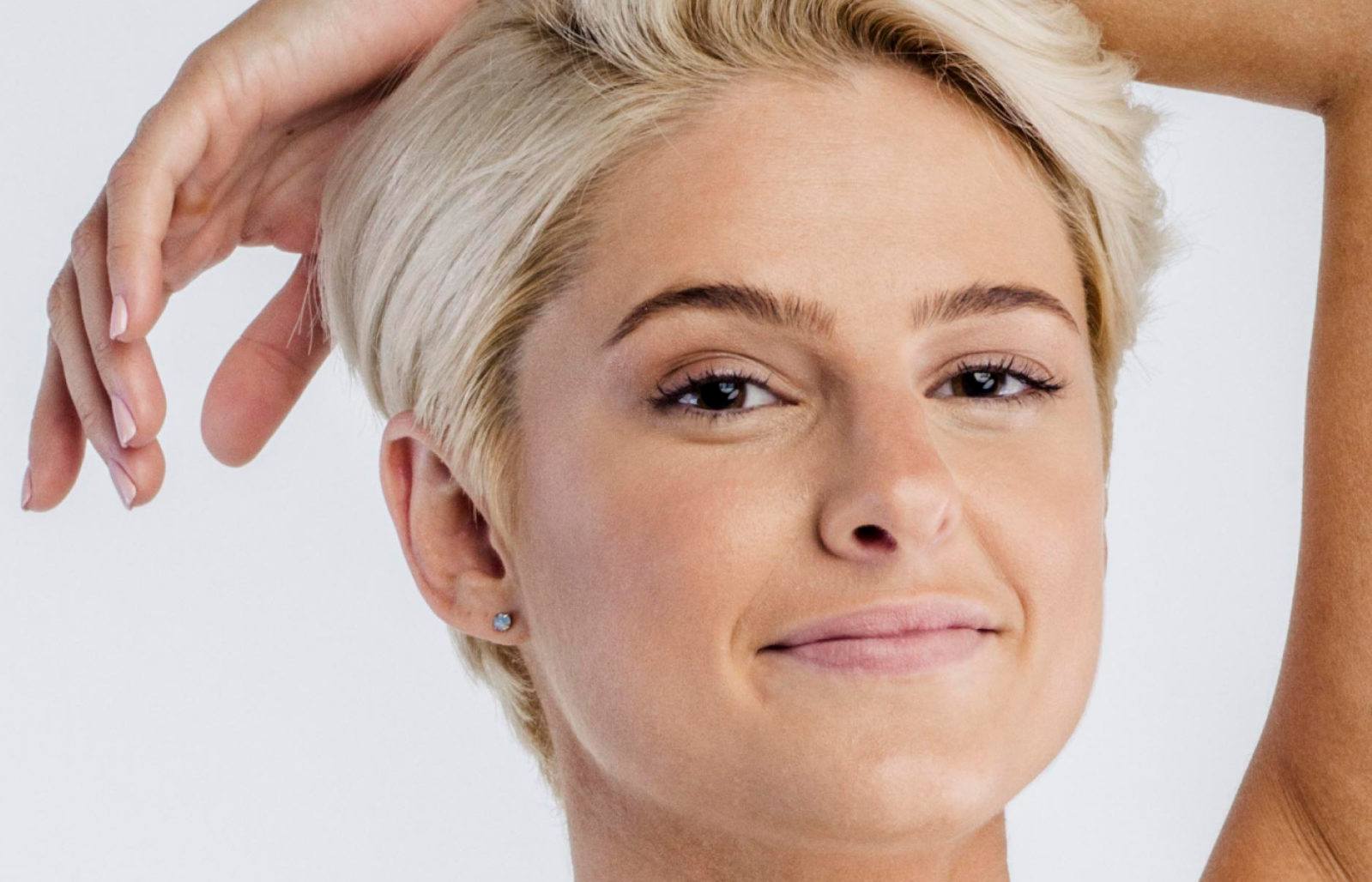Accutane is a brand name for isotretinoin, a form of vitamin A that’s available by prescription as a pill to treat severe cystic acne that has not responded to other prescription-strength acne treatments.
You might also recognize vitamin A as the active ingredient in retinoids like Retin-A (tretinoin), which is commonly used as a topical acne treatment, but isotretinoin treats large, painful cystic acne lesions more quickly and effectively than topical medications.
The pill form of the drug was approved by the U.S. Food and Drug Administration (FDA) in 1982 to treat what's known in dermatology circles as "recalcitrant nodular acne," the most severe type, which can be very difficult to treat and often leads to scarring.
Dr. A. David Rahimi, a board-certified dermatologist in Los Angeles, also uses Accutane off-label to treat patients with hydradenitis suppurativa (acne inversus) and severe, resistant rosacea.
Accutane works by reducing the skin’s production of sebum. This makes your pores less “sticky,” so they don’t get so easily clogged by excess oil, dead skin cells, makeup, and bacteria.
According to Dr. William Ting, a dermatologic surgeon in San Ramon, California, isotretinoin works “to bring about a semipermanent reduction in the inflammatory activities of the oil glands. It’s probably the only thing that has a fighting chance to bring about a cure.”
The FDA-approved pill also speeds up the skin cell renewal process, helping reduce the appearance of acne scars.
If you’re interested in learning more about isotretinoin therapy or acquiring a prescription, book an appointment with a board-certified dermatologist, preferably one specializing in a range of acne treatment options.
They’ll start by evaluating your skin and taking a thorough medical history. If they determine that you’re an appropriate candidate for Accutane, they’ll order the necessary labs and brief you on the drug’s risks, side effects, and requirements.
Dermatologists routinely screen potential Accutane patients for mental health conditions. If you have a history of mental health disorders, such as depression, your dermatologist may involve your therapist in the decision as to whether or not to prescribe Accutane acne treatment, as the drug can trigger or exacerbate mental health problems in certain people.
According to the American Academy of Dermatology (AAD), treatment oversight is the key to a safe and successful Accutane outcome. Per the AAD website, “You will meet with your dermatologist every 30 days, either in-person or through telemedicine. This allows your dermatologist to check in with you to see how you’re doing. If all is well, your dermatologist can write another 30-day prescription for isotretinoin.”
Most healthcare providers agree that isotretinoin shouldn’t be your first choice to get rid of cystic acne lesions. Your dermatologist will likely start with a topical therapy, like benzoyl peroxide or clindamycin, or an oral medication, like tetracycline antibiotics or minocycline.
You may also want to consider a new laser acne treatment called AviClear, which has shown to be effective in treating cystic acne nodules in clinical studies.
If these options don’t work to clear up your cystic acne, isotretinoin therapy may be the best choice.
Pros
- It can clear up inflammatory, nodular acne (large, painful lumps beneath the skin’s surface) when other acne treatments have failed.
- Some people also see an improvement in acne scars, thanks to accelerated skin cell turnover.
- It’s suitable for people of all skin types and tones.
- The cost of isotretinoin is covered by most insurance plans.
Cons
- Skin often gets worse before it gets better. During the purging process, which can last up to three months, dry skin and peeling are common.
- Isotretinoin can cause severe birth defects. Monthly blood tests are required to check liver function, determine blood count, and ensure that female patients aren’t pregnant before each refill is authorized.
RealSelf Tip: In some patients, Accutane may also cause mental health problems like depression and suicidal thoughts—though it has also been linked to improved mental health. Read on to learn more about possible side effects and safety concerns.
Your cost will depend on your dosage, insurance coverage, and how long you need to take the medication. According to Dr. Ting, the average course of Accutane is typically five months but can stretch to as long as a year. Some patients even need two courses to see fully clear skin.
Isotretinoin is covered by most health insurance plans. If you don’t have insurance, generic isotretinoin can be much more affordable via coupons from pharmacy discount card providers like GoodRx.
See our complete guide to Accutane costs
The Accutane photos in our gallery have been shared by the provider who performed the procedure, with the patient's consent.
When prescribed to an appropriate patient—who complies with mandatory screening requirements (outlined below)—and carefully monitored by a board-certified dermatologist on a regular basis, Accutane is generally considered to be a safe and effective treatment for severe cystic acne.
That said, the drug does carry a number of serious risks, possible side effects, and contraindications.
The biggest risk is to pregnant women. Isotretinoin can cause miscarriages, severe birth defects, and stillbirths. Routine pregnancy tests and multiple forms of contraception, like birth control pills plus condoms, are essential for premenopausal women on Accutane (more on this below).
Common Accutane side effects
Most Accutane patients will experience some of these side effects:
- Dryness and peeling skin, especially around the lips, eyes, and nose
- Eczema flares (bland moisturizing creams and ointments can help)
- Dry eyes
- Nose bleeds (resulting from dry mucous membranes)
- Joint pain and muscle pain
- Increased cholesterol and triglyceride levels
- Some temporary hair loss
- Increased sun sensitivity
One small study found muscle aches and lumbar pain to be more common in women vs. men on Accutane, but otherwise, Accutane side effects in males are similar to those in women (except pregnancy-related issues, of course).
Isotretinoin can sometimes make you tired, although this may be alleviated by changing your medication time.
Dr. Rahimi also cautions that this medication can affect the skin’s ability to heal. Because of that, “patients on Accutane should refrain from aesthetic ablative lasers, tattoos, or body piercing for at least 4 months” after their isotretinoin treatment ends.
Possible sexual side effects
In both men and women taking Accutane, there have been reports of persistent sexual side effects, such as:
- Erectile dysfunction
- Loss of libido
- Genital numbness
Less common side effects
These side effects are more rarely associated with the use of isotretinoin.
- Nausea
- Irritable bowel syndrome
- Rectal bleeding
- Blurred vision (night vision in particular)
- Dizziness
- Allergic reaction
- Jaundice (yellowing of the skin and whites of the eyes)
Mental health risks
This drug has been associated with depression, mood changes, psychosis, and suicide, though the link may be correlation, rather than causation. “We are usually treating younger people, who are more likely to have mood disorders,” points out Dr. Rahimi. “I have treated Accutane patients since 1999 and have not seen any patients become truly depressed.”
Some studies have also shown that the use of isotretinoin can improve mental health. “Large population-based studies have demonstrated that patients who use this drug have much greater likelihood of attaining a sense of well-being than of feeling more depressed,” says Dr. Ting.
Letting acne go untreated can also be detrimental to mental health, points out Dr. Rahimi. “It hurts me when I see a 16- or 17-year-old with really deep disfiguring scars who did not get Accutane because of a perceived risk of depression.”
If you have a history of depression or eating disorders, talk with your provider about whether an alternative acne treatment may be better.
Worsening of preexisting conditions
Health problems like diabetes, an intestinal disorder (like ulcerative colitis or inflammatory bowel disease), heart disease, bone disorders, asthma, liver disease, or high cholesterol or triglycerides may become worse with isotretinoin treatment.
Rare long-term adverse events that can persist even after isotretinoin treatment include vision problems, internal organ damage, or sexual side effects.
RealSelf Tip: You may have heard that isotretinoin increases cancer risk, but in fact the opposite is true: it's being used in clinical trials to help stop the growth and spread of cancer cells.
Accutane isn't actually banned: it was discontinued by its manufacturer, Hoffmann-La Roche Inc., and is no longer available for sale in the U.S.
At the time it was discontinued, Accutane sales made up less than 5% of the isotretinoin market. Its manufacturer had also been plagued by personal injury lawsuits related to birth defects and other side effects of Accutane.
Plenty of other versions of isotretinoin—such as Absorica, Amnesteem, Claravis, Myorisan, Sotret, Oratane, Zenatane, and generic versions—are still widely available.
Your treatment course will depend on the severity of your acne and specific skin concerns. “Normally, the treatment duration ranges from four to six months,” says Dr. Emily Altman, a dermatologic surgeon in Short Hills, New Jersey. “I recommend six months, starting with a lower dose of isotretinoin and gradually increasing, so that the body has time to adjust.”
You'll take one isotretinoin capsule once or twice a day, in doses of either 10mg or 20mg, depending on your weight and the severity of your acne.
Women will need to have a negative pregnancy test and be using two forms of birth control while on the medication. The drug does not diminish the effectiveness of birth control, but isotretinoin is associated with severe birth defects.
You’ll have monthly blood tests to check your liver function and cholesterol levels, as well as monthly pregnancy tests (if you’re a woman) as part of the iPLEDGE program.
iPLEDGE is a computer-based program founded in 2006 by the U.S. Food and Drug Administration to set strict requirements for patients, providers, and pharmacists.
iPLEDGE requires that women of childbearing age have a negative pregnancy test and agree to use two forms of birth control while taking isotretinoin.
After starting treatment, female patients must take monthly pregnancy tests, and providers need to enter the results into the system before a pharmacist can fill the prescription. This must be repeated every month while taking the drug.
The goal of the program is to prevent fetal exposure to isotretinoin and make sure that everyone who takes the drug is aware of the risk for severe birth defects. All patients are required to register with the program.
Your provider should give you a list of what to avoid, but it will likely include multivitamins containing vitamin A, oral antifungal medications (certain drug interactions can be harmful), and alcohol, which can put extra stress on your liver.
“Isotretinoin is metabolized by the liver, and we monitor this monthly with lab tests to be sure the liver is handling the extra load,” says Dr. Sonia Badreshia-Bansal, a Danville, CA dermatologist. “It is also important to avoid other medications or drugs that are metabolized by the liver, like acetaminophen products and fat-soluble vitamins, especially Vitamin A.”
Be sure to talk to your doctor about any medications or supplements you’re taking, including multivitamins and allergy medication.
Plan to hold off on any elective treatments for at least six months after starting your treatment. As we mentioned above, Accutane interferes with healing and can increase the risk of scarring, especially after laser treatments, dermabrasion, tattoos, and even hair removal techniques, like waxing.
You’ll also be advised not to give blood while on the medication.
Finally, Accutane can make you more susceptible to muscle and bone aches. Limit any intense physical activities or exercise. If you experience any muscle weakness, alert your provider immediately, as this can be an indication of a more serious side effect.
As previously noted, women must also avoid unprotected sex while taking Accutane.
Most people will see significant improvement within four to five months.
The first month of treatment can be frustrating—you may notice your acne getting worse. This is a normal sign that the treatment is working.
“The course of Accutane is 20 weeks, and you need to be on it for the full course to get the maximum benefits,” says Dr. Michael H. Gold, a Nashville, TN dermatologic surgeon.
“During the first eight weeks, you actually may break out more from the treatment. The next eight weeks is when most of the acne will resolve, and the last four weeks is what I call overkill—the remaining acne should leave during that time,” he continues. “Remember that every patient is different. This drug works quickly in some and takes longer to ‘kick in’ in others.”
If you’re using other skin care products, choose gentle formulas. Moisturizer is especially important, but your skin will be very sensitive, so you’ll want to be careful about what you put on it. Choose bland creams over formulas with active ingredients.
For some patients, Accutane can permanently get rid of inflammatory acne. Others need a second treatment course, but this is usually due to the initial dosage being set too low.
“In most cases, the acne does not come back,” says Miami-based dermatologist Dr. Todd Minars. “That does not mean you will never get another pimple for your entire life, but most patients never go back to the severe acne that they had prior to treatment.”
“Half my patients will get a cure—no more acne for the rest of their lives,” says Dr. Ting. “The other half could come back in six weeks, six months, or six years. What I do know is, if you terminate the Accutane treatment too early, the chance of acne coming back is greater.”
Isotretinoin treatment can slightly improve your acne scarring, but don’t expect it to remove all signs of acne. You’ll probably need an acne scar treatment to get totally clear skin.
Isotretinoin and pregnancy don’t mix. If you become pregnant while on Accutane, your baby is at an increased risk for serious birth defects, even death.
According to one study, there’s an estimated 20%–35% risk for congenital defects in infants exposed to isotretinoin while in utero.
If you’re of child-bearing age, you’ll be required to have a negative pregnancy test, followed by a second a month later. Only then will your provider give you your first prescription.
“This is arguably the most regulated medication in the U.S.,” says Dr. Ting. “Your physician, pharmacist, and you, if you are female, must attest on the iPLEDGE program registry monthly. All premenopausal female patients must have monthly pregnancy tests—both bloodwork and urine pregnancy tests.”
You’ll need to be extremely cautious in the sun during your treatment and for about six months after because isotretinoin makes your skin extra sensitive to light.
Consistently using sunscreen with a high SPF is important, but if you have sunny vacation plans that just can’t wait, it may be possible to pause your treatment. You should still be using sunscreen, however, and reapplying it every two hours.
“You can discontinue Accutane for a short period of time while on vacation and then restart, to reduce sun sensitivity,” says Dr. Miriam Hanson, an Austin, Texas, dermatologist. “However, you may get an acne flare. I usually recommend to my patients that we lower the dose to 10 mg and then go back to the full dose when they return,” she continues. “Either way, you should be ‘sun smart’ and minimize your exposure while on vacation.”
If you’re looking for an alternative that doesn’t contain isotretinoin, you may be a candidate for a topical medication—such as benzoyl peroxide, dapsone, or Retin-A—or an antibiotic.
In addition, spironolactone works well for hormonal acne by blocking the androgen receptors, which can cause excess oil and cystic acne.
Some laser treatments and chemical peels may also be a possibility for treating your acne. If you’re curious about trying an in-office treatment, such as the new AviClear acne laser—a promising solution for all types of acne, including cystic nodules—or a light chemical peel, you should consult with a board-certified dermatologist or doctor about these alternative treatments.
“Typically, salicylic acid peels are better for acne, but glycolic peels in higher concentrations can also be very effective,” says Dr. Gregory Turowski, a plastic surgeon in Chicago. “Remember that a series of peels will be necessary, followed by maintenance peels, to keep your acne under control. Usually, not one peel or treatment works for acne, so multiple different treatments, sometimes combined with prescription medication, will help.”



